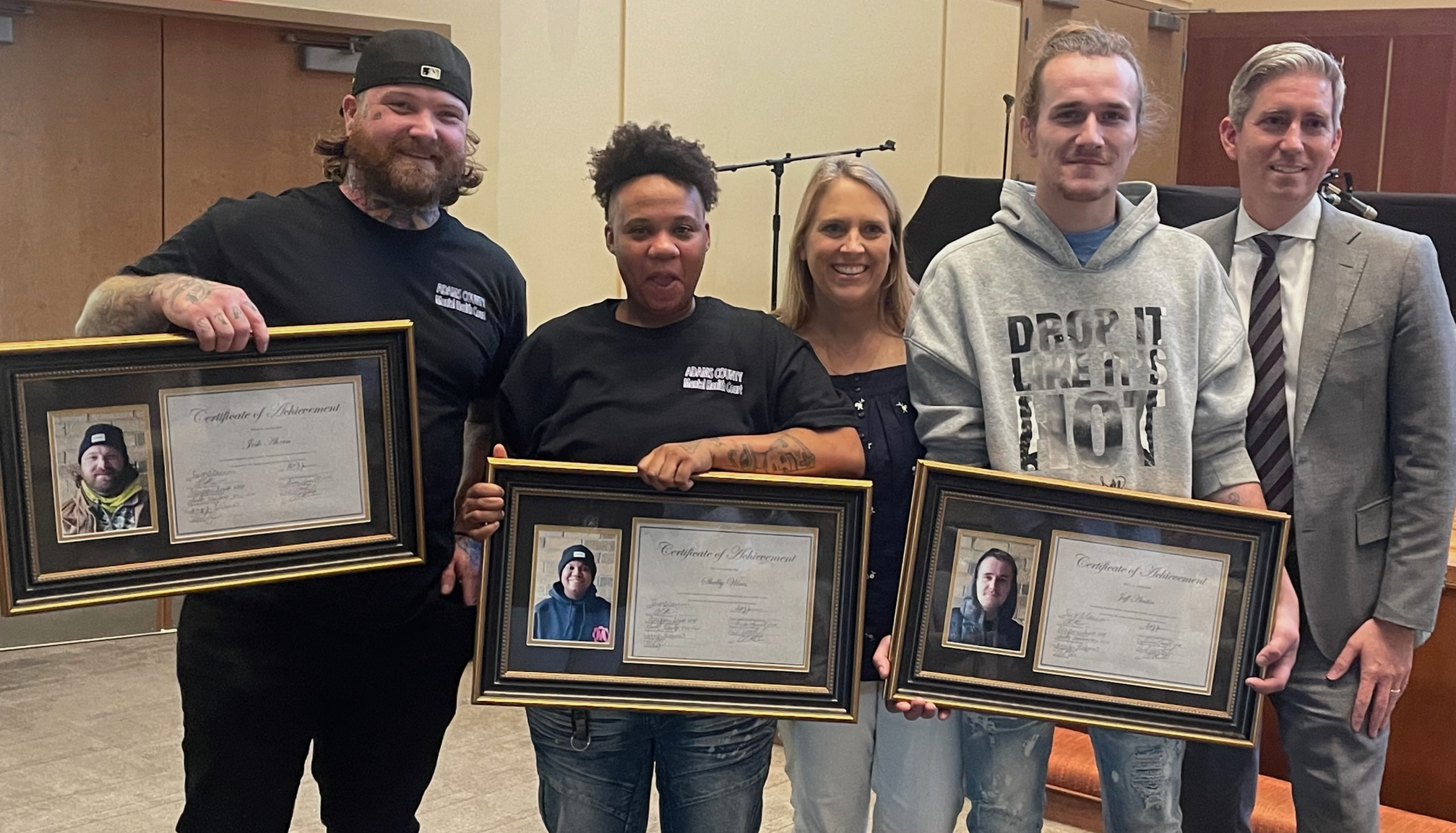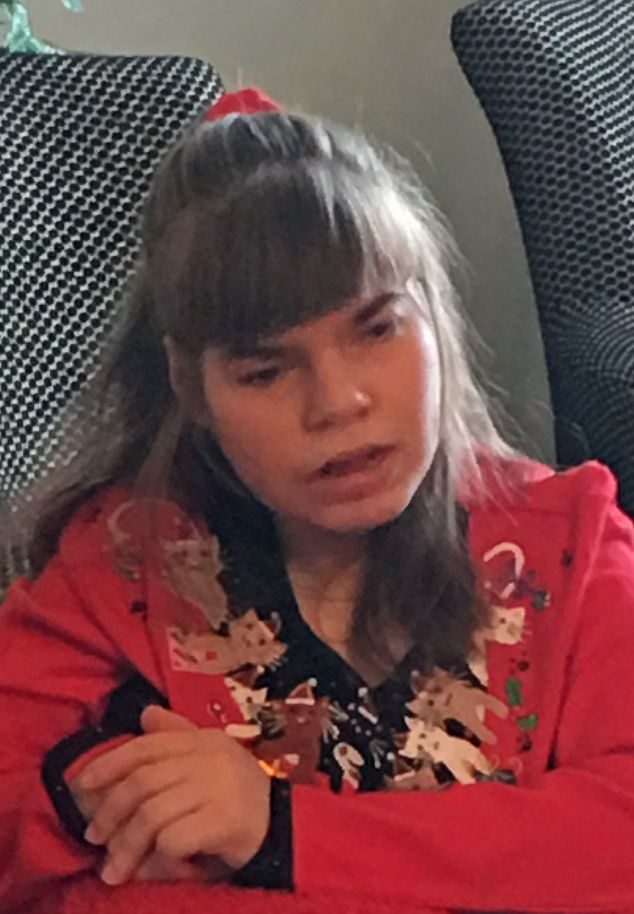‘I realized I can change’: Adams County problem-solving courts graduate nine in combined ceremony

QUINCY — The Salvation Army’s Kroc Center was the site for the first combined graduation ceremony for the Adams County problem-solving courts, which provide opportunities for repeat offenders to address the root cause of their criminal activity.
People who qualify are screened and placed in one of three tracts — Drug Court, Mental Health Court or Reintegration into Society Efforts (RISE) Court.
Gail Westerhoff, problem-solving court coordinator for the Adams County Probation Department, admits most of the participants face challenges in all three areas.
“Everybody in all three courts faces substance abuse, mental health issues and criminal thinking,” Westerhoff said. “We place them in the most ‘in your face challenge’ right this minute. There’s not really a way to know what came first … the chicken or the egg. But what’s the most detrimental to their life right this moment is what we try to focus on.”
Drug Court graduated its 25th class Thursday. Lucas Dimmitt, Kevin Sconce and Taylor Freeman received their certificates. RISE Court participants successfully completing their journey were Timothy Strunk, Edgardo Colon and Olivia Atkinson. Certificates were issued to Joshua Ahern, Jeff Austin and Shelby Wires for completing the Mental Health Court program.
Dimmitt said his addiction escalated when the mother of his two sons died 9 years ago.
“I was with the wrong crowd at first,” he said. “But I can’t blame it on the crowd. I just got so wrapped up in it that (drugs) went from a want to a need, to a have-to-have habit.”
As he faced charges of possession and burglary, Dimmitt’s big challenge was overcoming his lack of self-worth.
“Just finding myself again after an 18-to-20-year addiction,” he said. “Get my confidence back. I realized I can change.”
His teenage sons, now 17 and 19, are back in his life.
“(Without Drug Court), I wouldn’t have them in my life right now,” Dimmitt said. “I was losing trust with everybody. With me being clean now, I have a great relationship with them.”
Strunk was facing two burglaries and an aggravated battery charge. He was battling a 26-year drug and alcohol problem.
“I started drinking on weekends when I was 15,” the Quincy native said. “That escalated and progressed to drinking every day, and then drugs followed.”
Part of his healing is giving back to those struggling with similar problems.
“I’m a big member of Alcoholics Anonymous,” Strunk said. “I continue to work my steps, and I sponsor other people. Take other guys through their steps. It’s an important a part of my recovery.”
Strunk feels fortunate that, after such a long stretch of criminal behavior, people in law enforcement felt he could change.
“I’m not sure what they saw in me,” he said. “I’m really not sure. Obviously, they saw something that I didn’t see.”
Wires always knew something was just a bit off, but she said she fought against the feelings. Eventually she tried dealing with it on her own.
“As I got older, I started to self-medicate, with drug use, alcohol and things like that,” Wires said. “And it got really, really worse when I lost my father back in 2015. That’s when everything really took this downhill spiral.”
Facing two domestic battery and a couple of drug possession charges, she faced years of probation. Diagnosed as bipolar and schizophrenic, Wires entered the Mental Health Court program.
The counselors provided insight into what she was going through.
“When I got to mental health court, I got a better understanding that it’s not that you’re crazy or that your psycho. It’s just that you have an illness,” Wires said. “You need to learn how to take care of this illness and how to manage it with medication and things like that.”
Wires now is engaged. She thanks God and her family for being there through her recovery.
“(Mental Health Court) was the greatest thing that could have happened for me,” she said. “The Mental Health Court team, they really pushed me to be the best person I could be.”
Miss Clipping Out Stories to Save for Later?
Click the Purchase Story button below to order a print of this story. We will print it for you on matte photo paper to keep forever.

